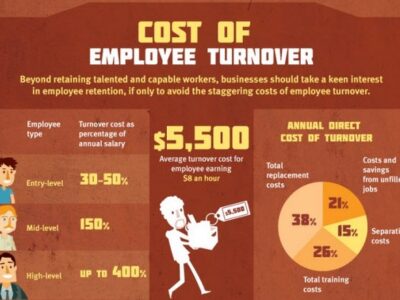In the past 12 months, 50% of small businesses have experienced a security breach through a cyberattack. A small business cyberattack is defined as the alteration of a computer’s data, coding, or logic through the use of malicious code, which can lead to other cybercrimes like identity theft, fraud, and more.
Many small business owners think they’re not at risk of being a victim of a cyberattack, but that is not the case. Not only are small businesses at risk, but small businesses can be more appealing to hackers because they don’t have proper security protections in place. No matter what size the business is, it’s important to protect both its physical and digital valuables. A clearly defined cybersecurity plan is equally as important as a clearly defined company culture—perhaps even more so.
In a small business, especially one just starting out, it can be difficult to find the time and money to ensure a proper cybersecurity plan is in place. Furthermore, it can also be difficult to ensure all employees are aware of cyberattack risks and are trained on the cybersecurity plan. Because of this, many malicious hackers will purposely target small businesses knowing they have a good chance of getting past their poor or nonexistent security program. For example, healthcare providers, which are often small businesses, are one of the most vulnerable types of organizations. In 2016, 27 million patient records were affected by cyberattacks!
So what types of cyberattacks should small businesses protect themselves against?
Below are the three most common types of small business cyberattacks to watch out for:
- Phishing scams
- Web-based attacks
- General malware
A phishing scam refers to those attacks in which hackers aim to trick users into either giving personal information or clicking on spam links. If a hacker receives this personal information, like an address, bank account, or social security number, they’ll be able to quickly take over the user’s identity and steal information from the business.
Threats that may be found while browsing the Internet are referred to as web-based attacks. Users who don’t use security programs on their computers are easy targets for these types of attacks. These attacks take place when the user is prompted to download or install some type of software, which in turn allows the hacker to steal the user’s information.
General malware attacks can be posed as an email with a seemingly harmless link or attachment. When the user clicks on the link or attachment, a virus immediately infects their computer. The virus can the lock the user out of all of his or her files and drives on the computer, or infect the entire network.
Understanding the importance of cybersecurity is just the first step. You must invest in proper cybersecurity and educate and train your employees so they understand their responsibilities as they relate to your cybersecurity program.
Has your business every fallen victim to hackers, phishing scams, or ransomware? Let us know how you bounced back from cyberattacks and what new cybersecurity measures you put into place.











